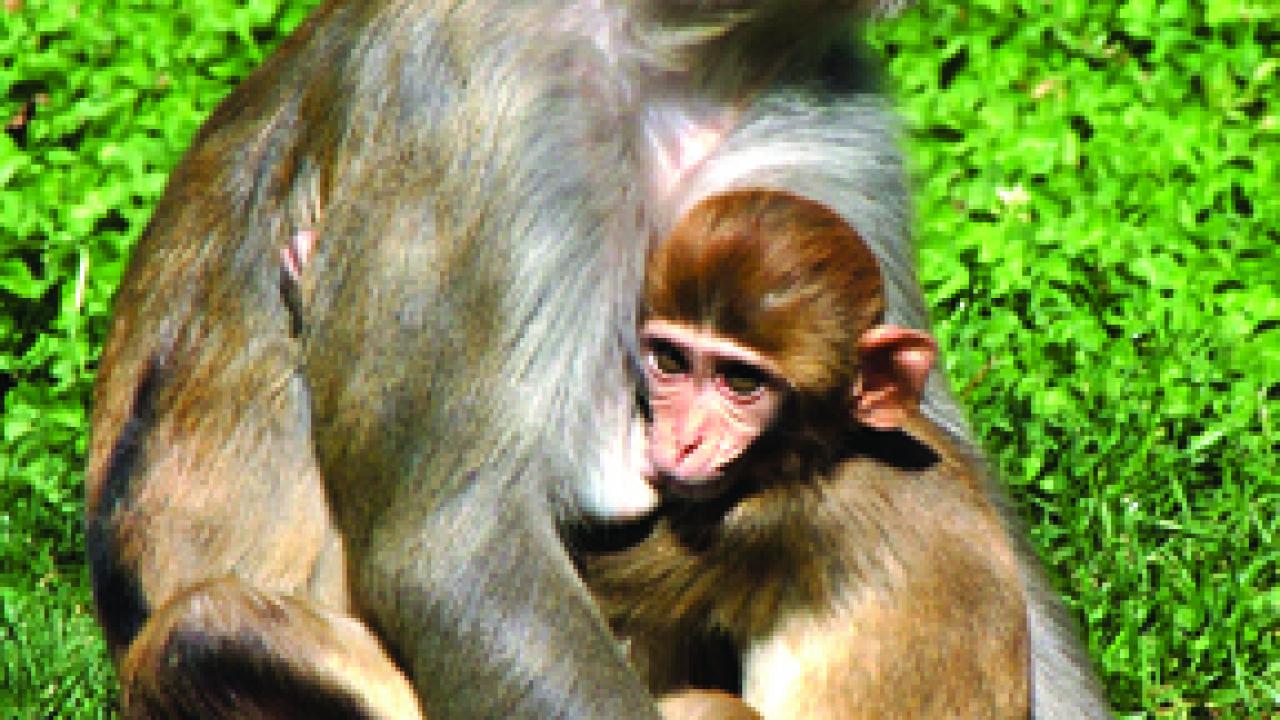A mother monkey’s milk sends signals to nursing infants that may program the infant’s behavior and temperament, according to scientists at UC Davis and the Smithsonian Institution.
Infant monkeys whose mothers had higher levels of milk energy soon after their birth coped more effectively and showed greater confidence compared with those whose mothers had lower milk energy, the scientists reported in the February issue of the American Journal of Primatology.
“This is the first study for any mammal that presents evidence that natural variation in available milk energy from the mother is associated with later variation in infant behavior and temperament,” said Katie Hinde, an anthropologist at UC Davis’ California National Primate Research Center and the nutrition laboratory at the Smithsonian’s National Zoo. She co-authored the paper with UC Davis psychology professor John Capitanio.
Although all of the monkeys in the study were fed the same diet, milk from mothers who weighed more and had had previous pregnancies contained higher available energy when their infants were 1 month old than the milk of lighter, less experienced mothers.
“Our results suggest that the milk energy available soon after birth may be a nutritional cue that calibrates the infant’s behavior to environmental or maternal conditions,” Hinde said.
At 3 to 4 months old, each infant was assessed for behavior and temperament. Infants whose mothers had higher levels of milk energy soon after their birth coped more effectively (moved around more, explored more, ate and drank more) and showed greater confidence (were more playful, curious and active). Infants whose mothers had lower milk energy had lower activity levels and were less confident when temporarily separated from their mother.
Media Resources
Dave Jones, Dateline, 530-752-6556, dljones@ucdavis.edu
